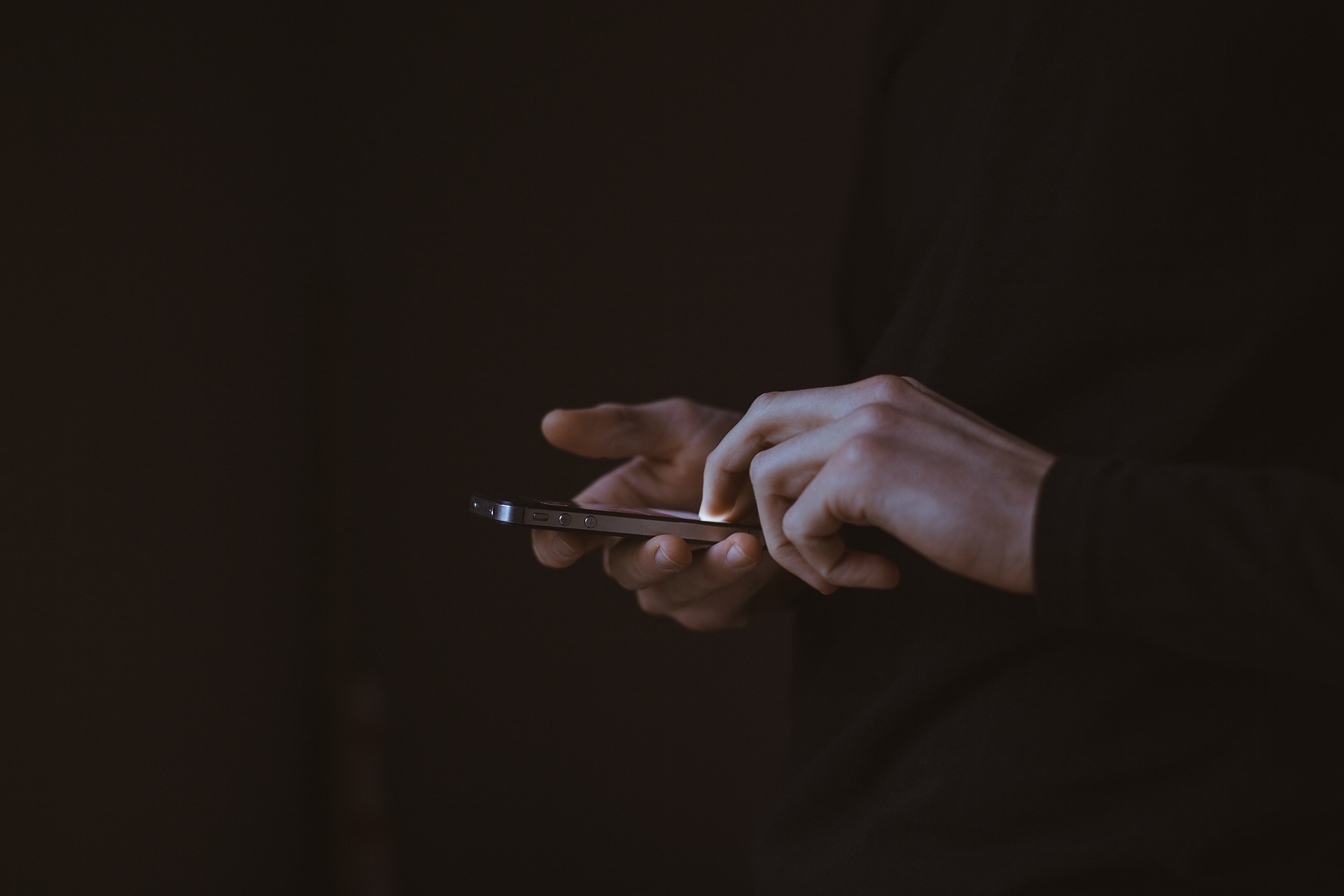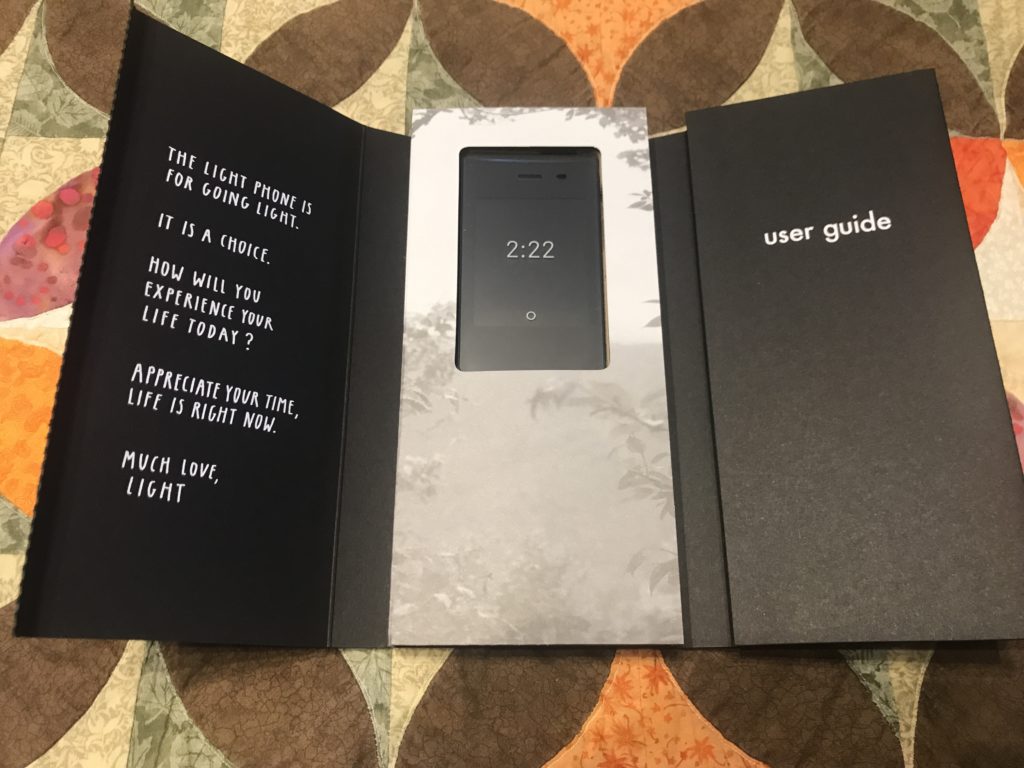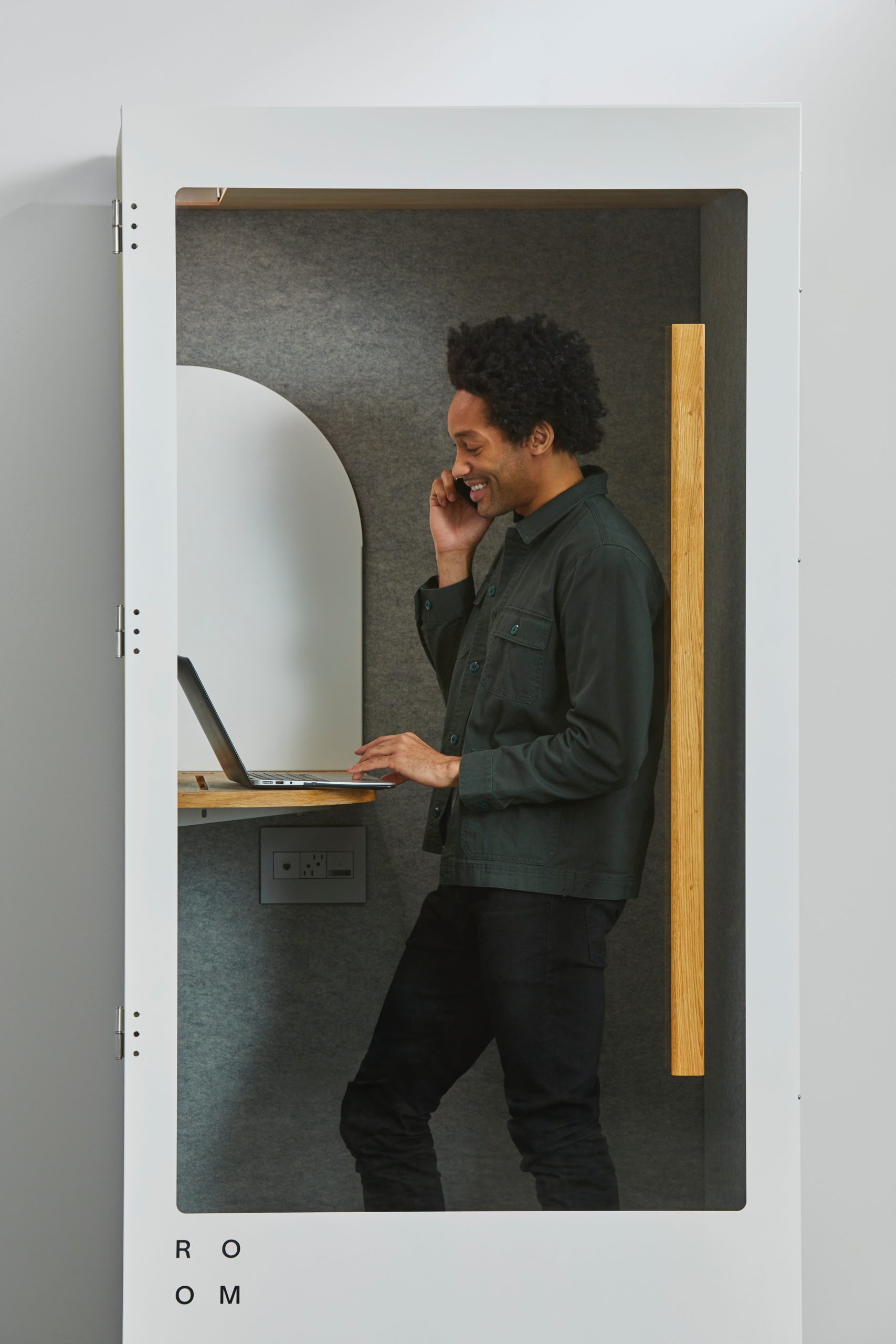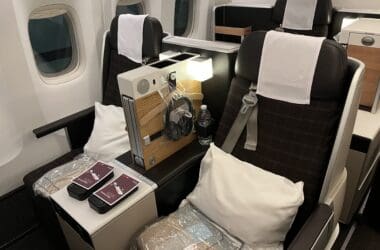Every Sunday I’d see my iPhone usage report. It was nearly always met with dismay. When the average time spent on my device crept over three hours per day, I experienced a mild level of guilt. Far worse were the weeks when that eclipsed four daily hours. What am I doing that requires me to be on my phone so much?!
Turns out, pretty much nothing requires me to be on my phone that much. When I’d look into the details of the usage, I’d see mostly time wasted. Once I started to filter out the “important” stuff from hours of useless “noise” where I mindlessly checked my phone for a few minutes, I found that the real usage of my device was small.
Thus, I determined that I would get rid of my smart phone. I quickly found out how easily I could live without one after dumping the thing. Ok…I still have it. But my iPhone now lives primarily in a kitchen drawer. Life has been so much better without it. I’m not looking back. Here are four reasons why I’m glad I got rid of my smartphone:
Reduction in Unnecessary Communication
A while back I disconnected my work email from my iPhone. It was a glorious day. Rather than being pinged all day long (I turned off the “ding” noise, but the red bubble still beckoned), I was able to restrict myself to answer emails from my office desk or from my laptop. If I really needed to, I’d log into Outlook through Safari. The level of pain required meant I didn’t do it often.
But this was just one small step. I have at least four personal email inboxes, all of which are connected to my iPhone. Answer? Get rid of the iPhone.
Beyond email there were the Slack channels, Discord channel, WhatsApp, Facebook messenger notifications, and other random things that begged for attention. All. The. Time. I could have basically communicated all day on my smartphone if I wanted.
Getting rid of the smartphone meant I got rid of tons of unnecessary communication. No longer am I catching up on Slack or WhatsApp at random points during the day, when parking the car, or waiting for my kids. Getting rid of the unnecessary communication paved the way for time for more real and necessary communication.
Regulation of Social Media Consumption
Getting rid of the Facebook app was a wise choice. Yet this didn’t mean I never logged into Facebook. It just meant I used the mobile browser. Sure, there aren’t any notifications, but the draw to check the social media account (plus Twitter, Instagram, etc.) was still there. I’d find myself mindlessly checking my phone while out on a walk, when in the car, or while eating meals. I was sacrificing engaging with life for engaging with the perfectly curated feed of other people’s lives.
Don’t get me wrong. Social media is fun. I have on Facebook friend who posts nothing but memes and jokes through the day. But I can live without this. Twitter is usually good for the best laughs. But it’s also a vitriolic cesspool that I don’t miss much.
Now I have no social media on the go. My LightPhone II has no apps and no data connection. I still check my accounts when on a computer, and I am seeking to regulate that more as well. Getting rid of the smartphone cut a great chunk of my use.
Increased Focus at Work
When you’ve trained your brain to be scattered and constantly checking notifications, emails, and apps, you’ve reduced your ability to work effectively. I guess your work cold consist solely of reacting to scattered, thoughtless “problems” that can be solved within seconds. But the vast majority of work isn’t like this. I do have a lot of reactive work (e.g. emails, phone calls, checking comments, checking project updates, answering questions, etc.). But over time my ability to sustain a high level of focus for creative and problem-solving work has waned.
I remember being able to get absorbed in complicated math and engineering problems during college and university. I’d spend half the hour bus ride completely oblivious to the world around me scrawling four pages of work as I churned through the problem. Sadly, I don’t even know if I could do this anymore. I’d have to turn off all media, not just get rid of my smartphone.
This is a fantastic article by Thomas Goulding in the Independent about his experience dumping their smartphone. One bit that really hit home is:
“It seems just a quick glance at phone notifications or e-mail can leave up to twenty minutes of cognitive residue that interferes with your mind’s ability to concentrate, and therefore reach its potential, on the primary task.” [bolding mine]
A second key thought:
“It’s also important to remember that the internet is deliberately structured in the manner so described in order to be financially as profitable for the institutions that support it. The faster users surf – the more clicks and pages viewed – the more opportunities there are for the likes of Google and Facebook to collect information about us, to feed to advertisers. The last thing Google wants, financially, is leisurely reading or concentrated thought. They are in the business of distraction.”
I have enough internet use as it is. Smartphone use is just an additional mental burden. No wonder it is difficult to concentrate anymore on complicated ideas and problems after all these years. I have definitely noticed a difference after dumping the smartphone. This, along with developing a clear daily workflow pattern, has helped my life tremendously.
Overall Improvement to Personal Wellbeing
All of these reasons combine into one simple takeaway: life is better without the smartphone. I find myself less anxious, less fidgety, calmer, and more able to tackle complex problems and difficult questions. There is a greater general sense of peace, even in the middle of some difficult situations.
You do have to deal with your worries, thoughts, and sources of anxiety. This can be a challenge at first. Too much devise use has the tendency to numb you out. Without the ever-present glowing screen in your pocket, this “lifeline” is no longer there.
Smartphone use is an addictive dopamine cycle. When I was feeling frustrated, down, unmotivated, or otherwise “in a funk”, it was way too easy to turn to. The quick reward of checking social media and a few apps would serve as a quick pick-me-up. It was a was of avoiding real things that needed doing. Not having it was hard. But not even as close to as hard as I imagined. Once you push through the initial wall, though, you’ll find the other side so much better.
Getting rid of the smart phone brings peace and reduces anxiety. It’s much like cutting the cable cord.
Yes, There Are Downsides
The camera is what I miss most. It’s not even a contest. Not having a smartphone has meant I’ve been unable to capture a couple scenes and events that I would have loved to photograph. This has been a bummer.
But I do have an actual camera. I just need to remember to bring it along when I think I’m going to need it. Yes, the lack of all-in-one device is a hassle. But dumping the smartphone has been worth it even with the loss of the camera.
The other app I sorely miss at times is Google Maps. This isn’t really for the directions. If these are critical, I grab the phone and download offline maps. This has been restricted (so far) to only when I’ve been out of the country. All the other times I miss not being able to look up business hours, places to eat, and other random map stuff. The biggest test was when I had to find my way to my sister’s new house, a place I’d only been once. Since I failed to get lost, Google Maps will stay in the unnecessary column. At least for now.
Not having a smartphone means I have to *gasp* print a paper airline ticket when traveling. Actually, I broke down and brought the phone on my last international trip. It gave me the best of both worlds. Camera. Maps. Notes. Airline apps. The upside outweighed the downside in this case. I’m just going to be selective when I use it.
Get Rid of Your Smartphone: Final Thoughts
I know most people would never consider ditching their smartphone. Our devices are almost an extension of us at this point. I never thought I’d get so addicted to my smartphone. Yet I did. Amazingly, my iPhone 7 is only the third one I’ve owned, but I still feel like I’ve had one forever. There is (sadly) a chance I buy a new phone, just for the camera capability. But this would be for the times I truly need it, which is overwhelmingly when traveling.
I want to encourage you to consider getting rid of your smartphone for daily life. Stack up all the reasons why it might be nice to drop the phone against the reasons why you’d want to keep it. You might be surprised how important the phone really is, and how many of your “reasons” aren’t really reasons. I’ve been more connected with my friends over the past few months than I have in years. It’s just different. And so much better.















Trading my XR for the light phone 2. Talk text gps and music.
I noticed how little I actually read compared to my college days. I felt sharp and its likely because I was forced to use a computer or read from a book. I also remember my days being longer. I honestly feel the day length is due to the amount of time I’m wasting on my Iphone. I’m tired of the in-your-face marketing and I honestly could do better with less news in my face all the time.
Yup. It’s so refreshing to move away from all that.
One reason to keep the phone is because it acts as a baby computer!
Absolutely. But I often have my laptop available anyway.
Could you just switch to airplane mode? You could then use the camera and switch out of airplane mode if the real need came up (directions or whatever). Or would having it more convenient that the kitchen drawer be too much of a temptation.
I’ve found I can do this and just check back in once an hour or whatever.
I’ve tried coming up with a few habits. Hard to stick with it. Honestly, putting it into the drawer and then heading to work is enough of a severance that I don’t miss it while home.
The very first time I was able to rebook my connecting flight from a smartphone app while my first flight was sitting on the tarmac because of a ‘hold at origin’ order from ATC and therefore not get stuck in Atlanta overnight made the device worth every penny. I won’t travel without one bow because of how much easier they make service recovery when something goes off plan.
That’s an important consideration. I’ve booked a hotel room multiple times from a plane, often waiting to make sure I’ve made my tight connection.
Smartphones are very useful tool that happen to fit into your pocket. I like the good camera mine has, I like the ability to handle quick communications when necessary or to look up a menu. I like being able to use navigation too.
There are no game apps on my phone and I have no social media accounts. I never liked watching video on such a small screen and never approach my 2 Gig data limit. I have only one email account. I don’t download many free apps and have never paid for an app.
I have noticed people with their noses in their phones switching between this app and that one. I think that behavior is pathological. The only time I ever stare at my phone is to read a few pages of whatever book I’m in on the Kindle app. I never developed the habit of constantly checking my phone. It remains on mute, with ‘do not disturb’ always on and the volume turned down/off. All notifications are turned off and only activated when I will need them.
You overreacted to your smartphone addiction by getting rid of such a useful device. You unnecessarily swung from one extreme to the other. It’s just like eating: moderation and discipline are good practices, which are also clearly and obviously rare in our society.
Your phone usage sounds entirely manageable. Without games and social media or constant web surfing, much of the draw is reduced. I actually still have Kindle books loaded on mine and have pulled it out specifically to read a couple times.
If you can have discipline, I absolutely agree with your points. For me, cutting it out cold turkey has proven to be best.
I often hear these types of comments from people who don’t struggle with addictive tendencies. “Oh, just do x, y, z, like I do.” Once addiction occurs, it’s too late to “moderate.”. The constant mental battle it takes addicts to moderate is exhausting. Giving something up completely is usually the best course of action. If people with addictions could moderate usage that easily, the addiction wouldn’t have taken hold in the first place. When trying to “moderate” I usually start out great for a while, but it takes constant mindfulness to curb my usage. And I have other things in my life that need my attention after a bit, so I slip up.